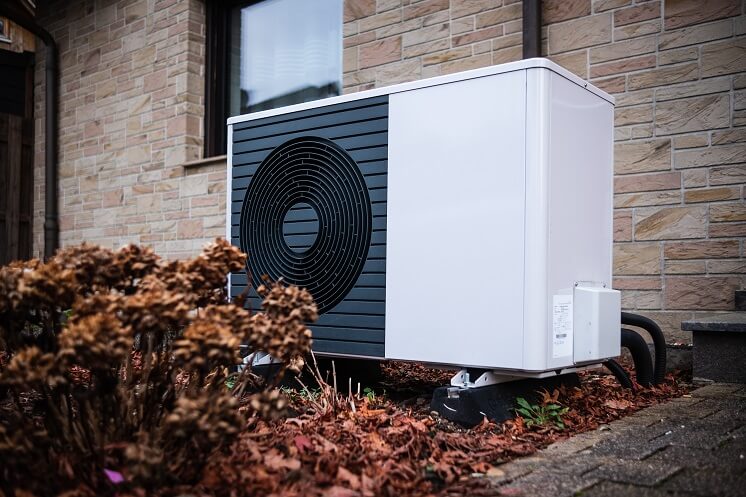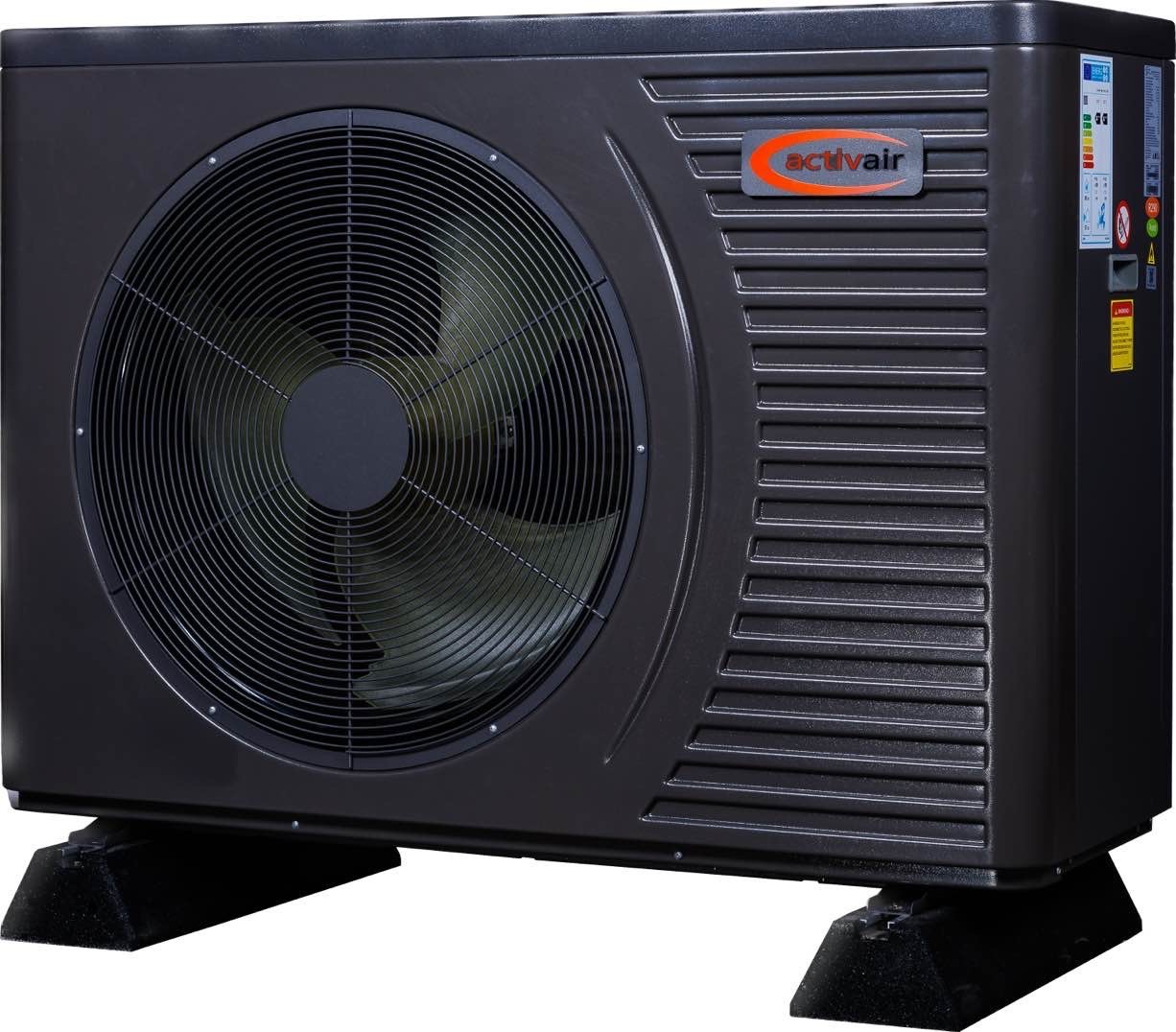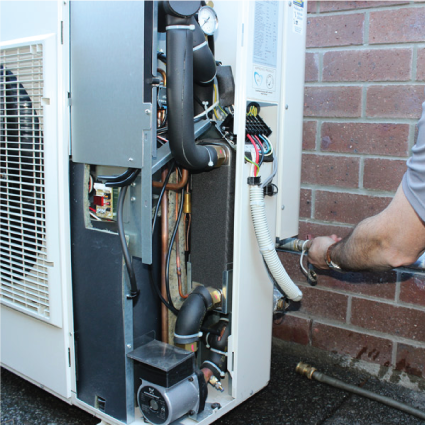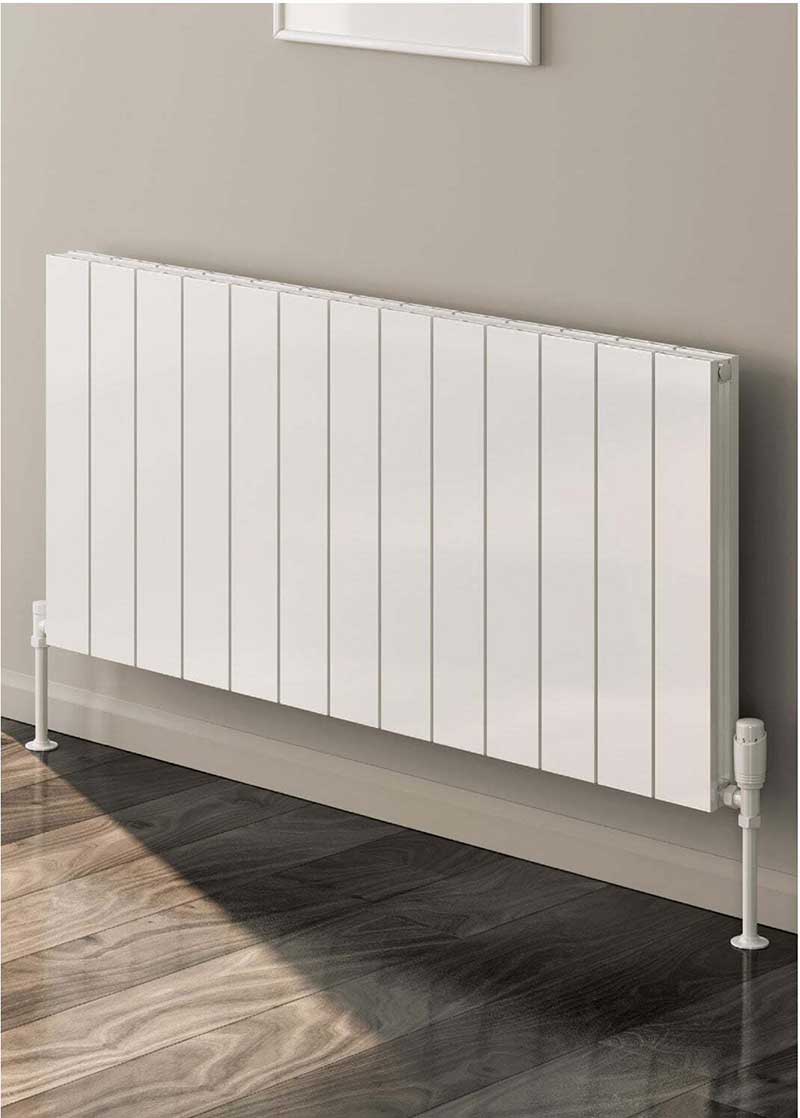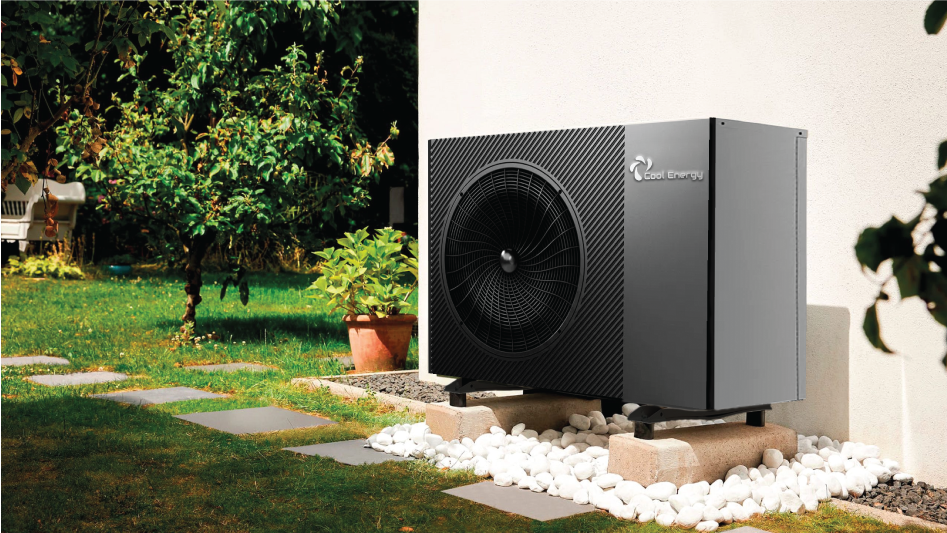Air source heat pumps are a sustainable heating choice that harness heat from the outdoor air to supply warmth and hot water for households. By swapping out your existing heating system with a heat pump, you have the potential to notably cut down on your energy expenses. This guide is designed to clarify the functionality of air source heat pumps, their benefits, and the potential costs associated with installing one, should it be the suitable heating solution for your residence.
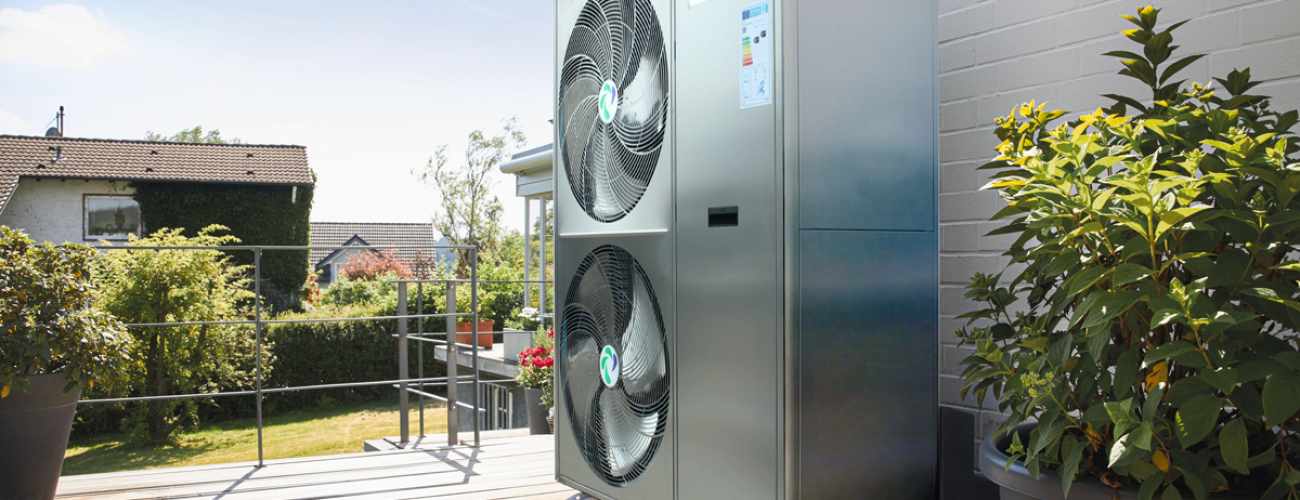
What's on this page?
What is an air source heat pump?
While wind turbines are commonly recognized as a means to harness wind energy, air source heat pumps offer another method of extracting energy from the air. Certain models can extract heat from the air, even in temperatures as low as -25°C.
In order to produce heat from the air, an air source heat pump is installed outdoors and incorporates a fan to draw in air. Subsequently, the air passes over a refrigerant fluid in an exchanger coil, causing it to boil and evaporate, transforming into vapor. The vapor is then compressed at a high temperature, generating heat for central heating and hot water in residences.
The process employed by an air source heat pump to produce heat and hot water is akin to that of a refrigerator or air conditioning unit, but in reverse.
There exist two types of air source heat pumps: air-to-air heat pumps and air-to-water heat pumps, which need to be compared to determine the most suitable renewable heating system for your property.
An air-to-air heat pump circulates hot or cool air throughout a home using fans, similar to an air conditioning system but with the added capability to provide heating. On the other hand, air-to-water heat pumps produce hot water that can be distributed to a wet central heating system, underfloor heating, or a hot water storage cylinder.
Advantages of air source heat pumps
Air source heat pumps present a sustainable substitute for conventional fossil fuel-based heating systems. Through harnessing energy from the outdoor air, they offer numerous benefits compared to the use of fossil fuels. Upon the installation of an air source heat pump, your home stands to gain from decreased energy costs, a diminished carbon footprint, and the possibility of receiving government grant payments.
Now, let’s delve deeper into the advantages of air source heat pumps.
No carbon emissions
One of the key benefits of renewable heating systems like air source heat pumps is the minimized carbon footprint. Conventional gas and oil-fueled heating systems burn fossil fuels to produce heat and hot water, resulting in the emission of carbon into the atmosphere, a significant contributor to climate change. In contrast, air source heat pumps extract energy from a sustainable source and produce zero carbon emissions. Furthermore, unlike gas and oil, which are depleting resources, the air serves as an everlasting fuel source.
Highly efficient performance will help to lower your energy bills
A contemporary condensing boiler typically operates at approximately 94% efficiency, signifying that not all the fuel is converted into usable energy, resulting in some waste being emitted through the flue pipe. In contrast, air source heat pumps achieve efficiency levels ranging from 300% to 400%.
Due to their exceptional efficiency, air source heat pumps have the potential to reduce your energy expenses. Depending on your current heating system, you could potentially save up to £900 annually.
Government funding
Recently, the government has been developing various grants and programs to incentivize homeowners to transition to renewable heating systems. These initiatives are designed to minimize carbon emissions by encouraging homeowners to replace fossil fuel systems with energy-efficient, low-carbon alternatives.
For further details on the most current grants, you can explore our section dedicated to grants and schemes.
Still generate heat during the winter
It might seem logical to assume that an air source heat pump is only effective for heating during the summer. However, air source heat pumps can actually extract heat from the air even in winter.
Additionally, during the summer, an air-to-air heat pump can also provide cooling for the property when temperatures are excessively high.
Disadvantages of air source heat pumps
Consideration of the drawbacks of air source heat pumps is important, despite their numerous advantages. One of the primary factors to evaluate is whether your property is suitable for an air source heat pump.
These heat pumps are designed to heat water to low temperatures, making them most suitable for heating systems with large radiators and underfloor heating. Adequate insulation is crucial to prevent the lower-level heat from escaping.
Even with proper insulation and a compatible heating system, it’s essential to determine if installation is feasible. Due to the potential complexity, seeking advice from a professional installer is recommended.
Outdoor space, such as a garden, is necessary for air source heat pumps. While the pump itself doesn’t occupy much space, it requires ample room to draw in air. Optimal placement in a sunny area is advantageous, as it reduces the workload on the heat pump.
Additionally, the cost of air source heat pumps should be taken into account. While they can be a significant investment, they have the potential to heat your home for up to 25 years.
Air source heat pump running costs
By incorporating an air source heat pump, you have the potential to save up to £900 on your energy expenses, particularly if your current heating system relies on electric storage heaters. However, if you already have a new A-rated condensing gas or oil heating system, there may not be an immediate need to switch to an air source heat pump in order to achieve energy cost savings.
The following table outlines the potential energy bill savings based on the type of heating system in your residence.
G-rated Gas Heating £400 – £465
| Current Heating System | Possible Annual Energy Savings |
|---|---|
| A-rated Gas Heating | Increase by £35 – £55 |
| G-rated Oil Heating | £460 – £545 |
| A-rated Oil Heating | Increase by £45 – £55 |
| Old Electric Storage Heater | £800 – £900 |
| New Electric Storage Heater | £465 – £545 |
| Coal | £425 – £525 |
To extract heat from the air outside and convert it into usable energy, air source heat pumps need electricity. Electricity is one of the most expensive fuels, particularly when you compare it to gas and oil.
Air source heat pump installation
An air source heat pump does not necessitate installation by an individual with specific qualifications. Nonetheless, your installer should thoroughly explain the entire installation process beforehand.
The installation typically follows these steps:
Prior to the installation, the installer will conduct a survey of your property to assess if an air source heat pump can efficiently heat your home. This assessment includes ensuring the presence of large radiators or underfloor heating, as well as adequate insulation.
The installation commences with the placement of the heat pump itself, which is the sizable outdoor unit containing a fan that draws in air. It should be situated in a spacious area to allow unobstructed airflow and be securely fastened to a wall.
Subsequently, the installer connects the heat pump to the central heating system and hot water cylinder. The complexity of this stage depends on the distance between the heat pump and the hot water cylinder, potentially involving the need to drill through walls to establish the most direct route for wiring and pipework.
A proficient installer can typically complete the installation of an air source heat pump within 2 days.
Compared to a ground source heat pump, an air source heat pump is the more straightforward type to install. Ground source heat pumps, on the other hand, require underground piping and consequently take longer to install.
Get multiple quotes
Prior to engaging an air source heat pump installer, we strongly advise comparing quotes to secure the most competitive price. My Renewable Quote maintains a network of renewable heating installers throughout the UK, and we can facilitate connections with those operating in your vicinity. Simply fill out our straightforward online form, indicating your intention to install an air source heat pump. Subsequently, you will receive complimentary quotes from up to 4 installers, enabling you to conduct a thorough comparison.
Is an air source heat pump right for your home?
Undoubtedly, air source heat pumps are set to play a significant role in the future of home heating. In combating climate change, there is a pressing need to substantially reduce carbon emissions, with 20% of all UK emissions stemming from home heating. Unlike the gas and oil-fueled systems predominantly utilized for home heating, air source heat pumps do not emit carbon into the atmosphere.
Nevertheless, the task of equipping over 20 million gas-grid-connected homes in the UK with air source heat pumps would be complex. Aside from practicality and cost considerations, not all properties are suitable for this type of heating system.
To ascertain the suitability of your home for an air source heat pump installation, it is advisable to seek the expertise of a fully-qualified engineer. Take the first step by completing our uncomplicated online form today, and we will facilitate connections with renewable heating installers in your vicinity.
Next steps
If heat pumps seem like an affordable choice for you, when you’re ready, our suppliers can provide you with quotes to compare the best prices – all you have to do is fill in this short form to get started.
Find out how much a heat pump would cost you
Complete A Short Form – Receive Free Quotes – Compare & Save
Find out how much a heat pump would cost you
Complete A Short Form – Receive Free Quotes – Compare & Save






